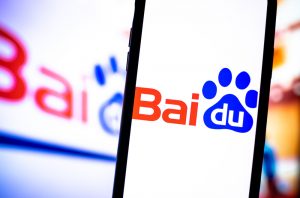

Baidu Advertising: The Latest Regulations (2022)
Since its establishment in 2000, Baidu has been the dominant player in China’s online search market. As the company has developed, it has also become a powerful advertising platform. However, Baidu has come under increased scrutiny from Chinese regulators.
Amidst concerns over monopoly power and user privacy, new regulations have been put into place, affecting how businesses can advertise on Baidu. If you are doing business in China or planning to launch a digital marketing campaign here, it is crucial to be aware of these latest regulations.
In this article, we will discuss the key changes that have been made and provide advice on how to comply with them.
What Are the Banned Industries in Baidu?
Want to know which industries are banned when you use Baidu advertising? If you are doing business in China or trying to reach out to Chinese consumers online, it’s important to be aware of these restrictions.
For digital marketers targeting China, this information can help you better understand how to optimize your website and content for Baidu.
The Chinese government has forbidden ads for businesses engaged in the following: pharmaceutical/drugs, obscenity, pornography, gambling, superstitions, terror, and violence.
Baidu, China’s largest search engine, has even more restrictive policies. In addition to government restrictions, Baidu forbids publishing ads for businesses in the following industries: medical apparatus and instruments, medical treatment and health, healthcare products, auction houses, franchise opportunities, sex products, virtual currencies, and political stability.
What Are the General Advertising Regulations in Baidu (2022)?
Baidu aims to further standardize the advertising ecosystem and create a healthier, more sustainable environment for advertisers and users. The general advertising regulations are as follows:
- All advertisers will be required to have a valid Baidu advertising license.
- Ads must be relevant to the user’s query and must not contain false or misleading information.
- Ads must lead to a landing page that is compliant with Baidu’s Content Guidelines.
- Ads shouldn’t criticize the other competitors’ products and services.
- Ads should be clear, concise and users should identify it as ads.
- If the ads contain data, queries, and survey information, they must be presented accurately.
Aside from these, marketers should remember that ads shouldn’t be placed on vehicles, personal properties and even residences unless consent was given. Ads on email should also follow these regulations and must include the real personal information. Furethermore, the emails must also allow the recipeints to unsubscribe or opt-out.
What Are the Regulated Industries in China?
There are quite a few regulated industries in China for advertisements. These include education, healthcare, finance, and many more.
If you want to place ads in any of these industries, you need to make sure that your ad content is compliant with the relevant regulations. Here is a quick overview of some of the most important advertising regulations in China.
1) Education – It is illegal to place ads that promise or guarantee results in examinations in China. This also applies to private schools and training institutes. In addition, ads that feature images or videos of children under 18 years old are not allowed unless they have obtained parental consent.
2) Healthcare – Prescription drugs should be advertised in designated pharmaceutical/medical publications. Products such as narcotics and toxic drugs, radioactive drugs must only be used by medical professionals and shouldn’t be advertised. medical equipment, beauty products and others that may affect the physical and mental health of minors shouldn’t be featured on public.
3) Investments – Ads that feature investments, whether products or services for which investors can expect an ROI needs, must have warnings about the potential risks.
Regulations on Baidu-Hosted Landing Page: What Should You Know
In April 2021, Baidu released a policy that notifies new Baidu users who register for a Baidu advertising account. Users can only advertise their business on Baidu search engine using Baidu-hosted landing page. It means Baidu ads can’t be linked to external websites anymore. So, if you have a self-hosted website, you need to think of this option: Baidu Jimuyu.
Baidu has a landing page engine called Jimuyu (基木鱼) a website builder that’s accessible within the Baidu PPC account. Users can actually create fast-loading mini-websites and landing pages, mini-apps, and HTML5 websites with this tool.
For users who don’t have a Chinese website yet, this is the best way to get started and launch one that doesn’t require technical skills. However, the interface is in Chinese, that’s why you need a native speaking SEO or PPC specialist or website developer to set it up.
Here’s the catch: companies must be eligible to still advertise (and can be whitelisted) Baidu using their website as long as they are Fortune Global 500 companies and government organizations.
Companies and brands that want to be whitelisted must have proof and documentation to apply.
Final Thoughts
As we mentioned at the beginning of this post, there have been some big changes in Baidu advertising regulations lately. If you want to stay ahead of the curve and make sure your campaigns are compliant with the latest rules, it’s important to understand what they are.
The team at LIMPID is here to help – contact us today if you need assistance setting up your Baidu PPC account or want advice on how to adjust your campaigns to comply with Chinese law.
We look forward to helping you reach even more Chinese consumers and grow your business!
 +1-877-574-2407 (US and Canada Toll Free)
+1-877-574-2407 (US and Canada Toll Free)  service@limpid-translations.com
service@limpid-translations.com






